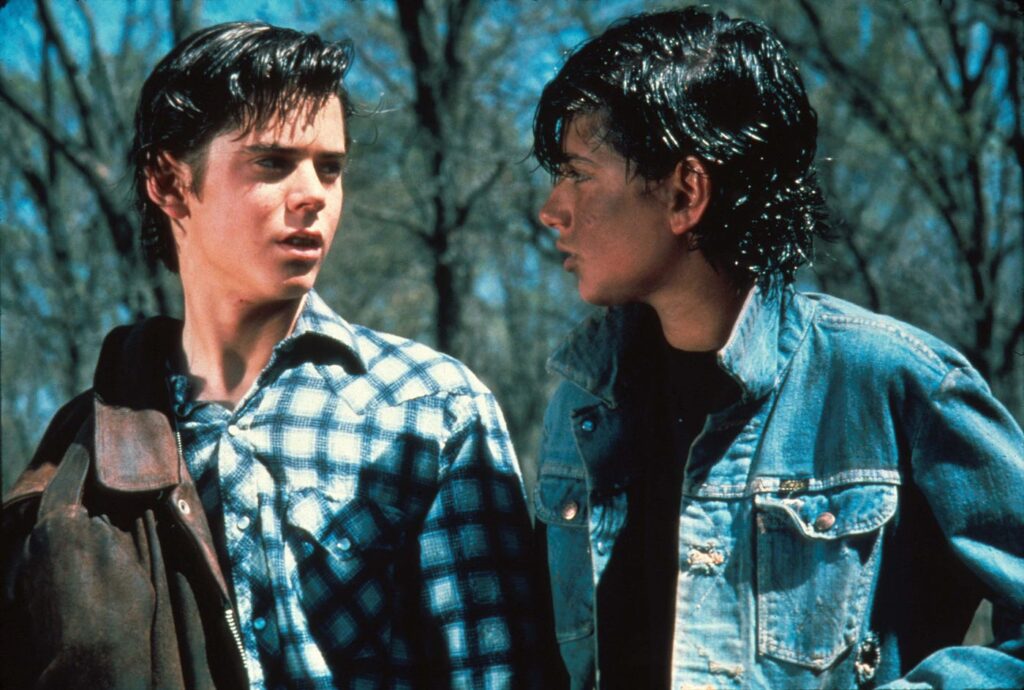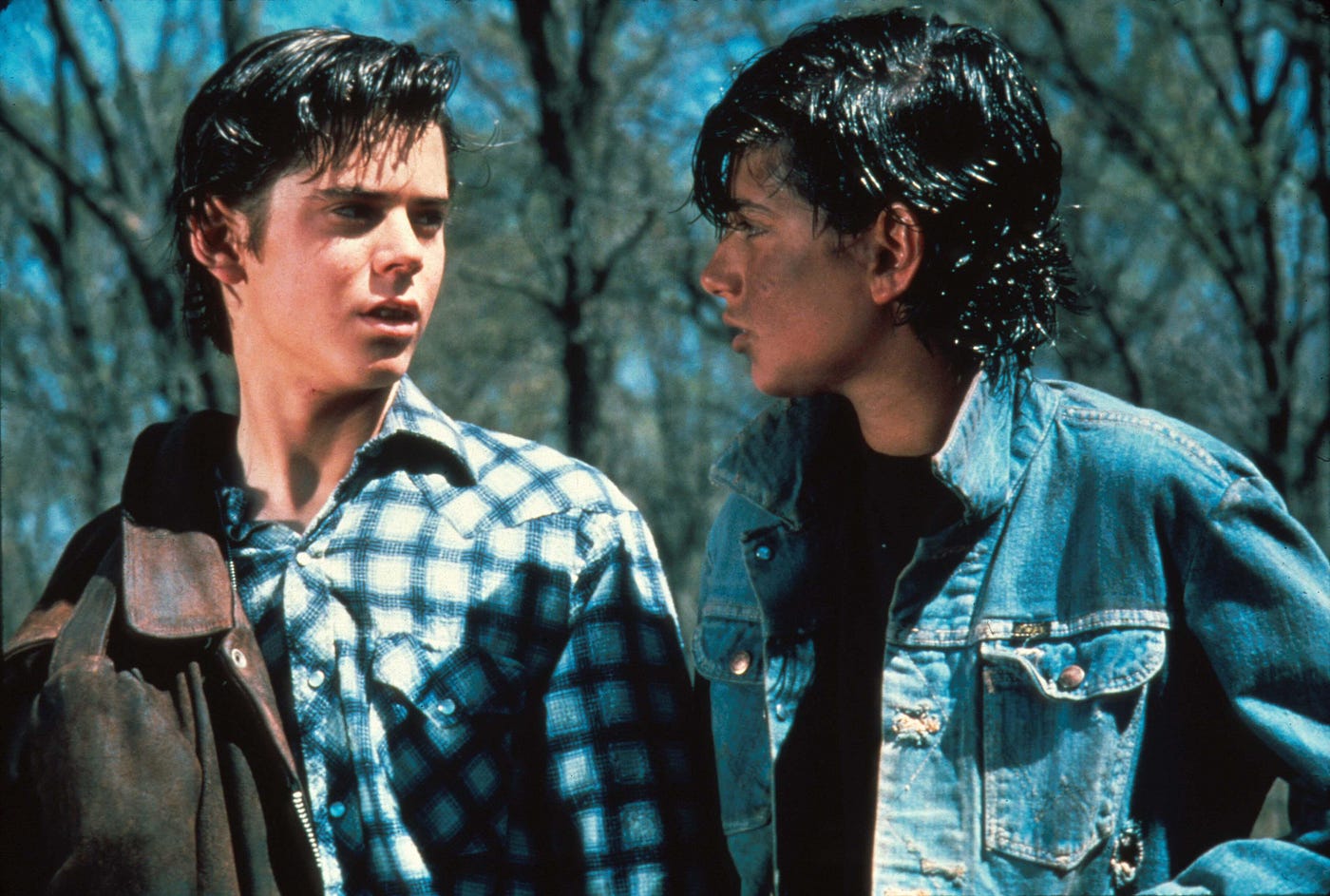
The Tragic Loss of Johnny: Exploring Johnny’s Dying Scene in The Outsiders
S.E. Hinton’s *The Outsiders* remains a cornerstone of young adult literature, resonating with readers for its raw depiction of social class, violence, and the search for identity. At the heart of this poignant narrative is Johnny Cade, the gang’s pet and the most vulnerable member of the Greasers. The circumstances surrounding Johnny dying in The Outsiders is arguably the most impactful part of the novel, marking a turning point for Ponyboy and the entire gang. This article delves into the emotional weight and significance of Johnny’s dying scene, exploring its impact on the characters and the enduring legacy of Hinton’s work.
The Build-Up to Tragedy
Johnny’s life is characterized by neglect and abuse. He lives in constant fear of his parents, finding solace and family within the Greasers. The incident at the park, where Johnny kills Bob Sheldon to save Ponyboy from being drowned, sets in motion a series of events that ultimately lead to his demise. Fleeing to Windrixville and finding temporary refuge in an abandoned church, Johnny begins to grapple with the consequences of his actions. The church fire, where Johnny and Ponyboy heroically rescue children trapped inside, initially paints Johnny as a hero. However, his injuries sustained during the rescue are severe, foreshadowing the tragic events to come.
The Hospital Scene: A Moment of Profound Impact
The hospital scene, where Johnny is dying, is arguably the most heart-wrenching in *The Outsiders*. Confined to his hospital bed, weakened by his injuries, Johnny faces the reality of his impending death. Ponyboy and Dally visit him, bringing news of the upcoming rumble between the Greasers and the Socs. However, Johnny’s focus is not on the gang warfare but on the beauty of life and the importance of innocence. His famous last words, “Stay gold, Ponyboy. Stay gold…”, encapsulate the novel’s central theme: the preservation of innocence in a world marked by harsh realities. These words urge Ponyboy to maintain his inherent goodness and avoid becoming hardened by the violence and cynicism that surrounds him. The moment of Johnny dying is devastating, not only for Ponyboy but also for Dally, who views Johnny as the only thing he truly loved.
Analyzing Johnny’s Last Words: “Stay Gold, Ponyboy”
The phrase “Stay gold, Ponyboy” is a powerful metaphor drawn from Robert Frost’s poem “Nothing Gold Can Stay.” It represents the fleeting nature of beauty, innocence, and goodness. Johnny, recognizing the potential for Ponyboy to lose his sense of wonder and compassion in the face of adversity, implores him to hold onto his “gold” – his inherent goodness. He understands that the world can be cruel and unforgiving, but he believes that Ponyboy has the capacity to transcend the cycle of violence and despair. The poem essentially underscores the transient nature of perfection and the inevitability of loss, which is something Johnny deeply understands as Johnny is dying.
Dally’s Reaction: The Unraveling of a Tough Exterior
Dally Winston, the hardened and cynical member of the Greasers, is deeply affected by Johnny’s dying. Johnny was the only person Dally genuinely cared for, the only beacon of hope in his otherwise bleak existence. Upon learning of Johnny’s death, Dally’s world crumbles. He robs a grocery store and is subsequently shot and killed by the police, an act of self-destruction fueled by grief and despair. Dally’s death highlights the devastating impact of loss and the inability of some individuals to cope with profound emotional pain. His reaction underscores how deeply Johnny’s death impacted the entire gang. [See also: The Significance of Greaser Culture in The Outsiders]
Thematic Significance of Johnny’s Death
Johnny dying in The Outsiders serves as a crucial turning point in the narrative, prompting Ponyboy to re-evaluate his life and his place in the world. It forces him to confront the harsh realities of social injustice and the devastating consequences of violence. Johnny’s death also underscores the theme of loss of innocence, a central motif throughout the novel. The experience transforms Ponyboy, leading him to a greater understanding of himself and the complexities of human nature. It’s a pivotal moment where Ponyboy starts to understand the futility of the Greaser-Soc rivalry and the shared humanity that exists beneath the surface of social division.
Johnny as a Symbol of Innocence
Throughout *The Outsiders*, Johnny embodies innocence and vulnerability. He is the victim of abuse and neglect, yet he retains a sense of compassion and empathy. His act of killing Bob, though born out of self-defense, weighs heavily on his conscience. He dreams of a world free from violence and social division. He represents the potential for good that exists even in the most challenging circumstances. Johnny dying is not just the loss of a character; it symbolizes the loss of innocence and the crushing weight of societal pressures on young people. The memory of Johnny dying continues to motivate Ponyboy to strive for a better future.
The Impact on Ponyboy Curtis
Ponyboy’s journey throughout *The Outsiders* is profoundly shaped by his relationship with Johnny. Johnny’s unwavering loyalty and quiet strength serve as a source of inspiration for Ponyboy. Witnessing Johnny dying has a profound impact on Ponyboy, leading him to question the values and beliefs he has always held. He begins to see the futility of the Greaser-Soc rivalry and the importance of empathy and understanding. He becomes determined to break the cycle of violence and create a better future for himself and others. Ponyboy internalizes Johnny’s final message, striving to “stay gold” and retain his inherent goodness. The trauma of Johnny dying becomes a catalyst for growth and self-discovery.
Literary Devices and Techniques
Hinton employs several literary devices to enhance the emotional impact of Johnny dying scene. Foreshadowing, through Johnny’s injuries in the church fire and his weakened state in the hospital, prepares the reader for the inevitable tragedy. Symbolism, particularly the use of the color gold to represent innocence and beauty, adds depth to the narrative. The use of dialogue, especially Johnny’s poignant last words, conveys the character’s inner thoughts and feelings. Hinton’s realistic and unflinching portrayal of violence and social injustice contributes to the novel’s enduring power. The realistic depiction of Johnny dying is what makes the scene so resonating and impactful.
The Enduring Legacy of The Outsiders
*The Outsiders* continues to be read and studied in schools across the country, resonating with young readers who grapple with similar issues of identity, belonging, and social inequality. The novel’s themes of friendship, loyalty, and the importance of empathy remain timeless. The tragic circumstances of Johnny dying serve as a powerful reminder of the human cost of violence and the need for understanding and compassion. The book’s ability to connect with readers across generations speaks to its enduring power and its relevance in today’s world. [See also: The Social Commentary in The Outsiders] The scene where Johnny is dying is a constant reminder of the book’s central message.
Johnny’s Death and the Cycle of Violence
Johnny dying is a direct consequence of the cycle of violence that permeates the world of *The Outsiders*. The escalating conflict between the Greasers and the Socs, fueled by social prejudice and economic disparity, ultimately leads to tragedy. Johnny’s act of self-defense, while justified, sets in motion a chain of events that results in his own demise. His death underscores the futility of violence and the devastating impact it has on individuals and communities. It prompts readers to consider the root causes of conflict and the importance of finding peaceful solutions. The tragic scene of Johnny dying emphasizes the need to break free from the cycle of violence.
The Significance of Place
The setting of *The Outsiders*, a divided town reflecting the social and economic divide between the Greasers and the Socs, plays a significant role in shaping the characters’ lives and experiences. The abandoned church in Windrixville, where Johnny and Ponyboy seek refuge, provides a temporary escape from the violence and prejudice of their world. However, even in this idyllic setting, the threat of danger looms large. The hospital, where Johnny is dying, represents the harsh reality of their lives and the inevitability of loss. The places themselves become symbols of the characters’ struggles and the limitations imposed upon them by their social circumstances. The stark contrast between these locations accentuates the tragedy of Johnny’s dying moments.
Conclusion
The scene depicting Johnny dying in The Outsiders is a pivotal and emotionally resonant moment in the novel. It serves as a catalyst for change, prompting Ponyboy to re-evaluate his life and his place in the world. Johnny’s death underscores the themes of loss of innocence, the devastating consequences of violence, and the importance of empathy and understanding. His last words, “Stay gold, Ponyboy,” serve as a timeless message of hope and a reminder to cherish the beauty and goodness in the world. The impact of Johnny dying continues to resonate with readers, solidifying *The Outsiders* as a classic of young adult literature. The memory of Johnny dying continues to shape Ponyboy’s future. The scene where Johnny is dying is a powerful and unforgettable moment in literature. The story of Johnny dying is a testament to the power of human connection and the enduring legacy of S.E. Hinton’s masterpiece.

